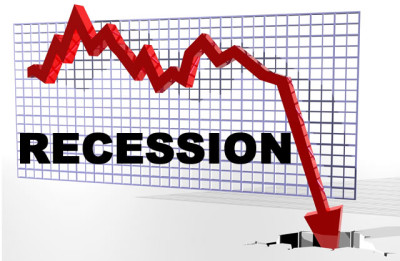The essence of democracy is for the political office holders and policymakers to muster the capacity to identify and satisfy the needs, yearnings, aspirations, collective dreams and desires of the people. That is, as against satiating the pecuniary and obscene tastes of the political class, at the detriment of the led majority.
But now, our economy is in a tail spin. The ship of state is currently caught in the eye of the storm. The oil-dependent economy which has long been besotted by the wanton waves of waste, profligacy and the hydra-headed monster of greed and graft is on the verge of being torpedoed into the vast ocean of recession. According to the World Bank, Nigeria ranks 169 out of 189 countries surveyed in terms of the ease of doing business. The parameters used include the ease of obtaining construction permits, access to electricity, enforcing contracts, registering property and trading across borders. But as the economy worsens, how prepared are we? That is the billion naira question, the answers to which may be farther than ever imagined.
He said that while the Federal Government enjoys the luxury of long-term loans to be paid back over a period of 20 years, the states must make a refund in only four years. How does this sound to your eager ears?
This sordid scenario however ignites the fundamentally burning questions. How come that some of the same state governors who are unable to pay the long-suffering workers have no tangible infrastructural development projects or job-creation strategies in place to show for the billions of the federal allocation they have been collecting over the years? How can they justify the sad fact that some of them have been globe-trotting in expensive, state-owned jets in search of elusive foreign direct investment? What about those who have been throwing lavish, ego-tripping parties for their kits and kin, and others secretly building mansions, where they hope to rest after the odious deed has been done? Who, really is fooling who?
Worse still, our sweet crude oil may no longer hit the benchmark of $120 per barrel, over the next two years. Between $70 and $85 may be more like it. Yari cites India and China where annual revenue from the rail transport alone equates to what Nigeria earns from crude oil sales. Some economic experts surely have their thinking caps firmly on in those countries.
Still on the parlous picture painted about the economy, may we add that the stock market is far from being bullish. Investors are no laughing smiling to the bank. Manufacturers are still groaning. In fact, the Director General of the Manufacturers Association of Nigeria, Remi Ogunmenfun, says all is not well with the members and their huge investments. The steel sector is on the verge of collapse. Yet, it has the capacity to generate over half a million jobs if the long-prostrate Ajaokuta Steel Company is functioning effectively. According to Sanjay Kumar, the CEO of Steel Business, African Industries Group, four of the steel plants in the country have been shut down. Many are currently operating at 30 per cent capacity. The sick sector to which N100bn has been sunk, currently needs N60bn injection to survive.
The challenge it faces is predicated on the continued importation of steel products thereby creating jobs for citizens of the exporting countries. This is in addition to the lack of input from experts on the sector before government’s policies are enunciated. Besides, government’s patronage is grossly lacking.
Both Yari and Ogunmenfun are therefore, canvassing the diversification of the economic base from oil to agriculture, solid minerals and infrastructural development. But we have heard this song before, have we not?
What have we done with revenues from the maritime industry, the customs and immigration services, taxes from the surviving manufacturing concerns and the entertainment and tourism industries, areas which if properly handled could generate more proceeds than oil?
The truth is that in the Nigerian experience, political power has more often than not been acquired and appropriated by a clique of overtly avaricious, unpatriotic elements to build family empires. Yet, they expect to be applauded for their fratricidal feat. That explains the reason behind the wide, inexcusable gap that currently exists, on the one hand, between the nation’s vast natural resources and the parlous state of the economy, 55 years after independence. And on the other, between the very few rich and the millions of citizens caught in the terrifying trap of ignoble poverty. It also underscores the insulting situation that has the same set of faces or their ilk occupying our political space, since the eighties. How can we continue to recycle the same old faces with their archaic ideas and hope to ever move this great country forward?
Obviously, the persisting power structure skewed in favour of the political class is both fraudulent and unsustainable. Something drastic has to be done, to reverse this drift to turning Nigeria into the patronage of the favoured few. It will make the so-called “dividends of democracy” to benefit those they are meant to-the people. Only that will make the much-touted “change” mantra be meaningful to the populace.
PUNCH
END


Be the first to comment